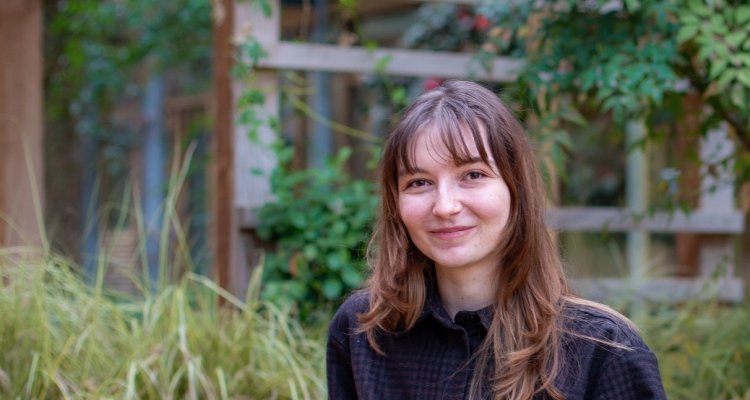
News
Humans of WUR - MSc student and Dies speaker Smaranda Filip on GenAI and smart cities
“When I started my studies in Wageningen, AI wasn’t a huge part of education. By the time I began my second master's, it had become widely used. This shift led me to explore mobility narratives in smart cities, the importance of epistemic justice, and how knowledge shapes these narratives.”
This edition of #HumansofWUR focuses on Smaranda. She will be speaking at the Dies Natalis about the use of GenAI in her thesis on epistemic justice in smart city narratives with a focus on transport and mobility planning.
Mobility in smart cities
“For my thesis in Land Use Planning, I focused on how mobility is described and imagined in smart cities. Mobility means different things to different people, so I worked with students and experts to understand their visions. I use GenAI as a tool for discussion, co-creation, and communication, to help imagine different urban futures. I combined literature study, policy analysis, focus groups, and AI-generated imaginaries to bring different perspectives into the conversation.”
“With ChatGPT, DALL·E, and focus groups, I generated AI-assisted imaginaries based on mobility narratives. These started discussions about the future of mobility and how it’s shaped by dominant ideas. The AI-generated imaginaries made it easier to engage with complex topics because they weren’t deemed ‘real’ by the participants, but also revealed limitations. AI struggled to represent people’s visions, and its biases needed to be critically examined. It showed that the human touch is essential to operate and interpret the output well.”
People-oriented interventions and responsible AI use
“This thesis is both a learning journey and an experiment that combined technology, planning, and social perspectives. I am interested in people-oriented interventions and in ways we can bring people’s perspectives or knowledge in decision-making.”
“My research taught me a lot about responsible AI usage. In my research, I used it as a tool for discussion and participation. It wasn’t intended as a literal vision, but as a tool which could reveal what values people wish for in their mobility future.”
Smaranda Filip – MSc Resilient Farming & Food Systems & MSc Landscape Architecture & Planning
Humans of WUR is a blog inspired by the popular photo blog Humans of New York. Humans of WUR is made for and by students on behalf of the Spreadthewurd team.
Read more
- "AI in farming is useful for looking ahead 50 years", says computer scientist Hilmy Baja - WUR
- “We have to take control,” says philosopher Paulan Korenhof on AI - WUR
- Dies Natalis | Artificial Intelligence for Sustainable Futures